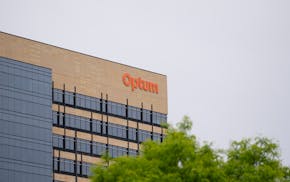Maplewood-based 3M is doubling what it will spend to resolve a dispute with Belgian authorities over "forever chemical" contamination, the company announced Wednesday.
The manufacturing firm is sending an additional $300 million to the European contamination site for remediation efforts, bringing the total to about $600 million.
3M struck a deal with the government of Flanders, the northern region of Belgium where the company has a major manufacturing plant, that "cooperatively resolves ongoing disagreements" over PFAS production and legacy contamination, according to a news release.
"Through this agreement, we will address priorities identified by the government to provide for the citizens of Zwijndrecht, build the foundation for future certainty in 3M Belgium's operations, and address future potential liabilities," John Banovetz, 3M's chief of technology and environmental responsibility, said in a statement.
The settlement ends current litigation "and provides certain releases of liability for 3M while recognizing that the government retains its authority to act in the future," the release said.
PFAS contamination was discovered in soil and water near 3M's plant in Zwijndrecht last summer, and high levels of the chemicals were found in local residents' blood.
The Belgian government halted the production of PFAS last fall and finalized stricter pollution standards this spring before the Zwijndrecht plant was cleared to reopen in June.
Flemish Minister of Environment Zuhal Demir said in a statement that "the health of our citizens and the protection of the environment comes first."
"We expect that every entrepreneur and company takes their responsibility to act upon that," she said.
PFAS is a family of chemicals used for their nonstick and water-resistant properties that do not break down in the environment. 3M also makes the chemicals in Alabama, Illinois, Germany and Cottage Grove.
The new funds will go toward remediation, a major local road project and directly to the Flemish government. Previous funds were used for remediation efforts and pollution control at the plant as well as for local farmers with contaminated soils.

DOGE cuts federal money for upgrades at Velveeta plant in New Ulm

Minnesota factories see orders tank on continued trade uncertainty
'We don't want to lose this mine': Fear sets in for Iron Range miners as shutdown takes hold

UnitedHealth sues the Guardian, alleging defamation in coverage of nursing home care
